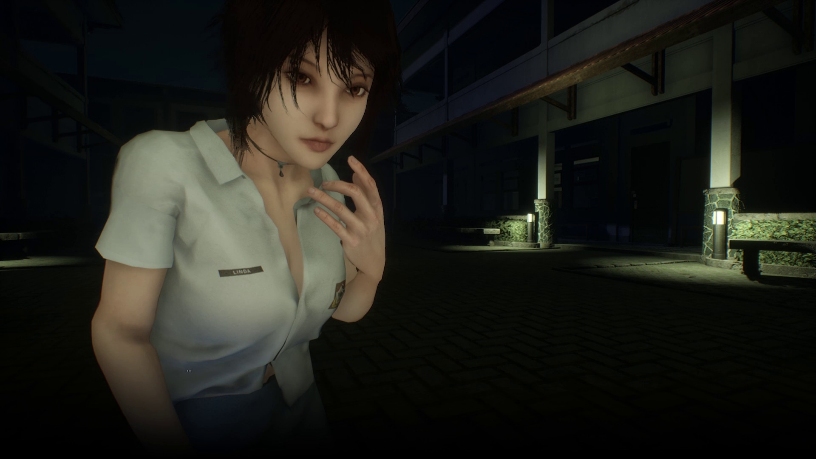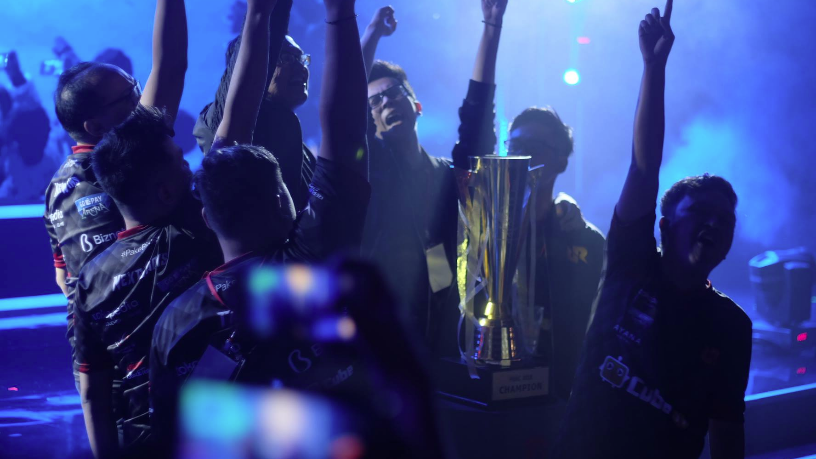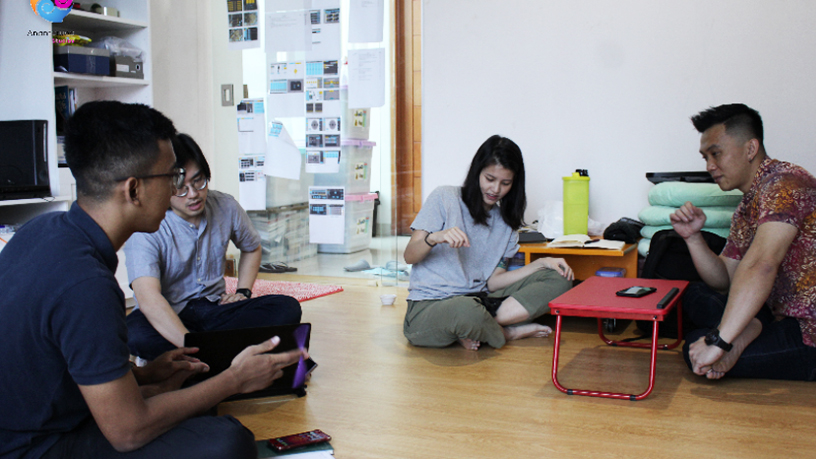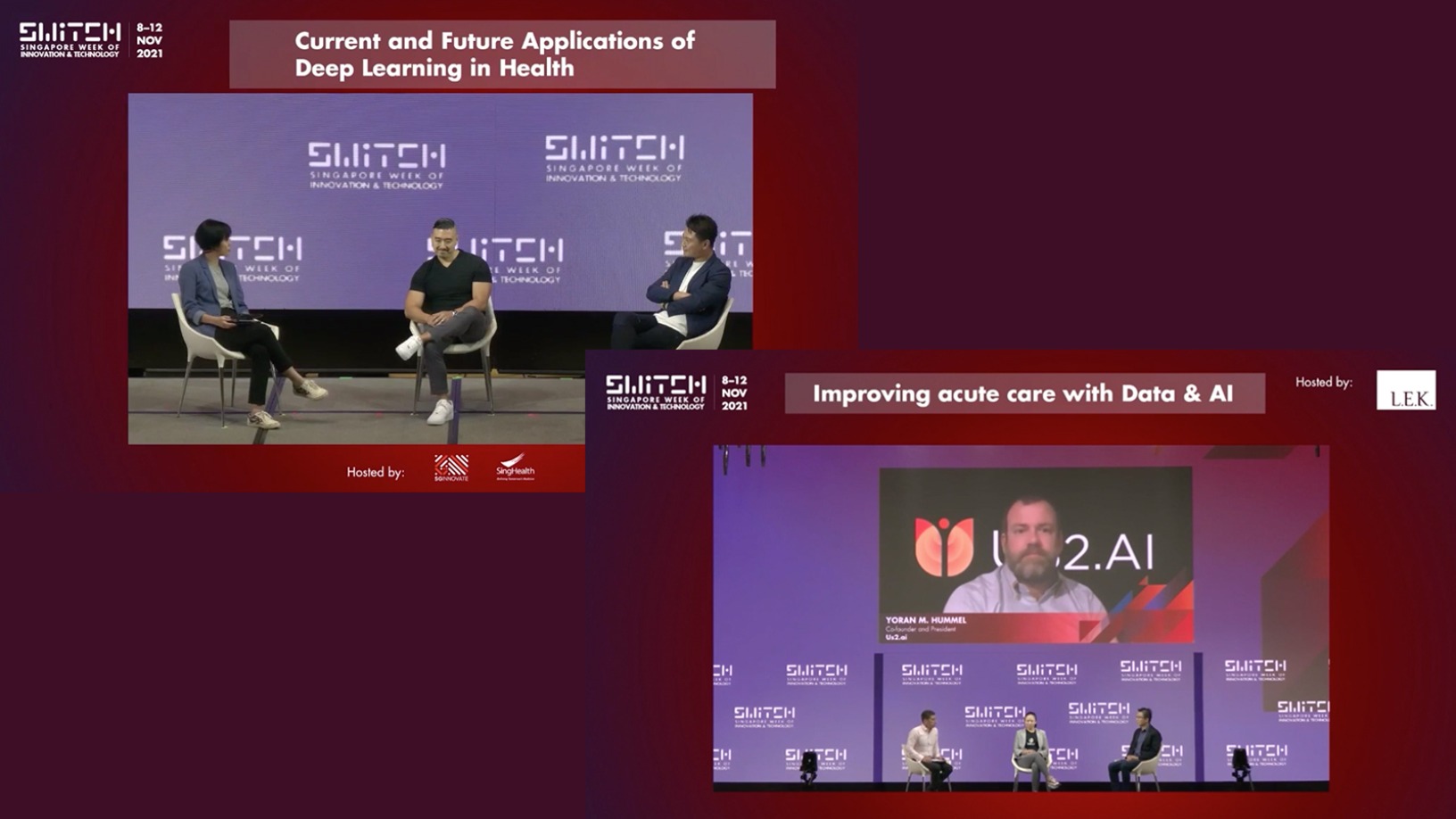The success of homegrown games developer Digital Happiness's horror survival adventure game, DreadOut, stands out as a rare feat in Indonesia. The country is one of the world's biggest markets for games, with sales of $1.1bn in 2018, but is not exactly well known for producing successful local, in-depth non-mobile games.
DreadOut, a game about Indonesian folklore ghosts, was made into a 2019 movie directed by popular Indonesian director Kimo Stamboel. A comic adaptation and a line of collectable figurines were also produced and the movie's producers are planning to expand it into its own cinematic universe, akin to comic book studio Marvel's series of related superhero films.
Initially financed through an online crowdfunding campaign for $25,000, which eventually garnered $29,067, DreadOut was developed by a small, determined team of four, who went on to bank studio sales of $7.5m. It is also one of the few Indonesian games that received kudos from overseas video game publications, with the majority of the reviews saying that DreadOut showed a promising game studio.
Italian gaming website Multiplayer praised the game's atmosphere as “thick and scary wherever you go.” Influential gaming website Polygon praised the game's villainous ghosts as being rightfully “creepy, bizarre and unique." Notwithstanding some technical bugs and graphics issues, many reviewers said the game's strength was the originality of its ghosts from Indonesian folklore.
Where games and traditions collide
Digital Happiness was established by Rachmad Imron, a native of Bandung in West Java. A 3D animator and design consultant, his biggest achievement before DreadOut was a simulation game for the Indonesian army. In 2011, he started working on other ideas after buying the game engine Unity and in 2013 registered the name Digital Happiness under the legal entity, PT Digital Semantika Indonesia. In 2016, Forbes Indonesia included Digital Happiness in its annual Global Brands listing; the following year, the studio was a finalist in the Best VR Games at the SXSW festival in the US.
"I love video games and I live with all types of pop culture within me, including comic books, manga [Japanese comics] and video games. I learned a lot about other cultures through video games," Imron told CompassList. Unfortunately, not many video games showcase Indonesia's rich and vibrant culture, he said.
For Imron, video games are more than just entertainment: “Ever since I was eight years old and started playing video games, and even now as a father, I am most interested in finding out which culture a particular video game was influenced by.” The success of Digital Happiness was driven by Imron's determination that in a country of 250m people, there should be someone "who is willing to take the risk of making a game that's got an Indonesian feel."
The studio began operating in 2013 with Imron and three colleagues – Vadi Vanadi, Sukmadi and Dwi Arif Irawan. Vanadi and Imron focused on developing their first game, which would eventually become DreadOut, while the other two undertook project management, including looking for funding.
After a few rough months, Digital Happiness eventually received funding from US crowdfunding website Indiegogo. To garner interest, the studio uploaded an early demo of the game. The total of $29,067 was reached in 40 days with most of the backers coming from the US and Europe.
“In terms of technical abilities, skills and the production team, we have experienced a significant growth, considering the complexity of this ambitious project we undertook as an independent studio," said Imron. "Ideas are cheap, execution is worth a million dollars," he added. The studio now has a total of 18 employees.
Unprecedented success
The PC version of DreadOut was released in May 2014 and was sold through the gaming digital distribution service Steam. By mid 2019, the game had been downloaded 2.5m times, with about 500,000 being paid purchases (the free version has limited features and gameplay). At $14.99 per download, the game grossed $7.5m for the studio.
As part of the business and marketing strategy, the game's release was divided into three parts: Act 0, Act 1, and Act 2, each building on DreadOut's haunted school mythology. Act 0 and Act 1 were produced for $50,000, using the crowdfunding and the co-founders' savings. Their success resulted in $150,000 worth of sales in the first month, which was used to fund Act 2.
Almost all of the downloads were overseas, 40% of which were from the US. Indonesia accounted for just 7% but Imron isn't disappointed, noting that many of the Indonesian downloads were by paying customers, which, he said, was a good sign for "the conversion of brand awareness into sales."
“It's really a challenge to monetize local games,” he said. “Our dream is that one day Indonesia can be like China, Japan, or Korea, where the majority of users are local players, and going global is not the main goal but a bonus.” The current market for local games has grown compared with when DreadOut was first released, he added.
A local fan, Feri Salim said: “It [DreadOut] has its flaws and bugs but it made me proud as an Indonesian.” Salim even bought download codes for his friends living overseas and studying to be programmers. "I want them to be inspired and make more games [in an Indonesian setting] like this," he said.
Movie's success, beyond gaming
The DreadOut movie was a huge boost that brought the studio attention beyond the gaming ecosystem. "One of the reasons we branched into movies was to see the potential of the DreadOut brand and the appreciation from the public was good. About 830,00 people went to watch it in cinemas," said Imron. More viewers in South East Asia watched the movie on Netflix.
Dio Firdaus, who wrote a review of the film for the Hai magazine, said that the film's success was not a surprise because Digital Happiness built a strong hype around it. “Even people like me, who aren't gamers, watched the movie," he said.
The movie also brought interest from companies not usually associated with the gaming industry. A character in the movie carries an Exsport branded bag, a lifestyle-sports bags produced by PT Eigerindo Multi Produk Industri from Bandung. The company later sponsored DreadOut 2 with an undisclosed amount of funding.
The success of DreadOut also led to partnerships with Morfosic, a studio which makes statues and figurines of fantasy characters, to produce toy figurines of DreadOut characters. Digital Happiness also became an official brand ambassador for the computer brand Lenovo.
The sequel: DreadOut 2
Digital Happiness released shorter standalone games in the DreadOut setting in 2016 (Keeper of the Dark) and 2017 (DreadEye VR), but these were not direct sequels to DreadOut. But the success of the DreadOut movie spurred the roll out in February this year of DreadOut 2, which takes place chronologically after DreadOut's true ending.
In addition to DreadOut 2, Digital Happiness has had a good start to the year. It received an undisclosed sum from the EPIC MegaGrants program of Unreal Engine (a grant that usually ranges between $5,000 and $500,000). For Imron, this is one of his proudest moments.
Right now, during the Covid-19 quarantine period, Digital Happiness is being operated from each of the team members' home. As many high-specification tools cannot be brought home from the studio, most of the development process has stalled. Still, it's just another challenge that Digital Happiness is used to overcoming, said Imron.
“We'll still be working, adding content and fixing bugs to DreadOut 2. We do it for our fans, team and passion,” he added.











